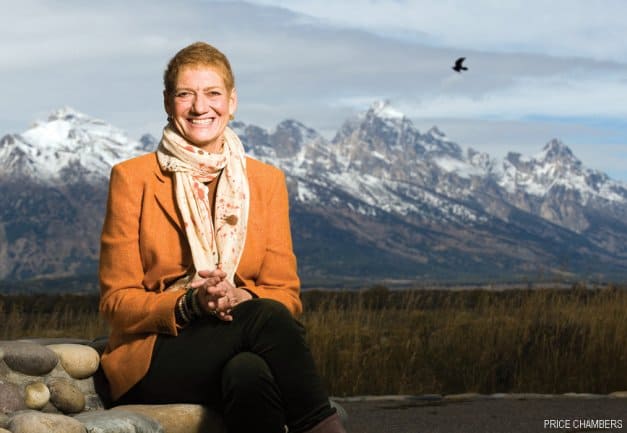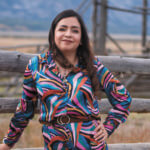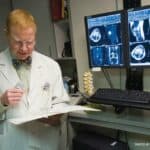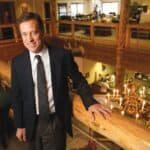Read The
Current Issue
Sophie Craighead
A Path of Giving
BY CARA RANK
Sophie Craighead has spent the majority of her life volunteering, helping others. The sixty-one-year-old recalls always being involved with something, as far back as her teenage years in New Jersey, from the anti-Vietnam War movement, to tutoring inner city black kids in French, to using animals to help rehabilitate criminals in the state prison. The daughter of Charles W. Engelhard Jr., a wealthy minerals industrialist, she says philanthropy is in her blood. After receiving a bachelor’s degree from the Georgetown School of Foreign Service, and a master’s of public administration from Harvard’s Kennedy School of Government, Craighead worked as a special assistant to Senate Majority Leader Mike Mansfield, D-Mont. One day, she packed her bags and moved to Sun Valley, where she met her future husband, Derek, an ecologist. In 1996, they moved to Kelly with their two children, now twenty-one and twenty-two. “I wanted to raise them in a healthy, small community where the outdoors was as much a part of life as anything,” Craighead says. “I didn’t want them growing up in shopping malls.”
Sophie Craighead continues to work on philanthropic causes, having sat on the boards of PAWS, Teton County PAL, Jackson Hole Community School, Beringia South, and the Community Foundation of Jackson Hole. One of the volunteer positions most dear to her is the time she spends at the Curran-Seeley Foundation, helping women battle alcohol problems. It’s a struggle close to her heart; Craighead has been in recovery for twenty-eight years.
Q. What attracts you to volunteering?
A. I inherited philanthropy from my parents. They were extremely generous. I’ve always believed in the importance of giving back.
Q. What do you get out of it?
A. I feel like the more you give back, the more you get and the more you shall receive. I feel like we all in our lifetimes have experiences good and bad. It’s
really important to capitalize on the bad and to help others. I think the reason you go through the [bad] experiences is so you know what it feels like. Once you know what it feels like, you’re able to understand what anybody is going through.
Q. You’ve battled alcoholism and now leukemia. What have those experiences taught you?
A. Getting sober, and helping others with alcoholism, I’ve learned it’s about how you find joy in your life—because that’s what we’re all here for, is to have joy. Most of us don’t understand that. I try to help these women understand that just because it was what it was, doesn’t mean it has to be that. Just because life wasn’t so good back then, life could be fabulous up ahead. I try to help them understand that it was all part of their path. There’s always bends and curves, and just around the next bend could be bliss.
Q. And leukemia?
A. When I was diagnosed in April, I had never been sick a day in my life. I had a stem cell transplant in June, and here I am 100 percent. When I got it, I didn’t get to a place of poor, pitiful me. I asked, What are the lessons? Somehow, on some level, I must have been chosen to have this experience. I believe I chose alcohol, to have the experience. With this diagnosis, I had to deal with total powerlessness. But I turned to a higher power. I believe it’s possible to go through any kind of fear, if you have a higher power on your side. The higher power I choose to call God. You don’t have to believe in God, but you have to have a higher power. If you have that, you can walk through anything.





